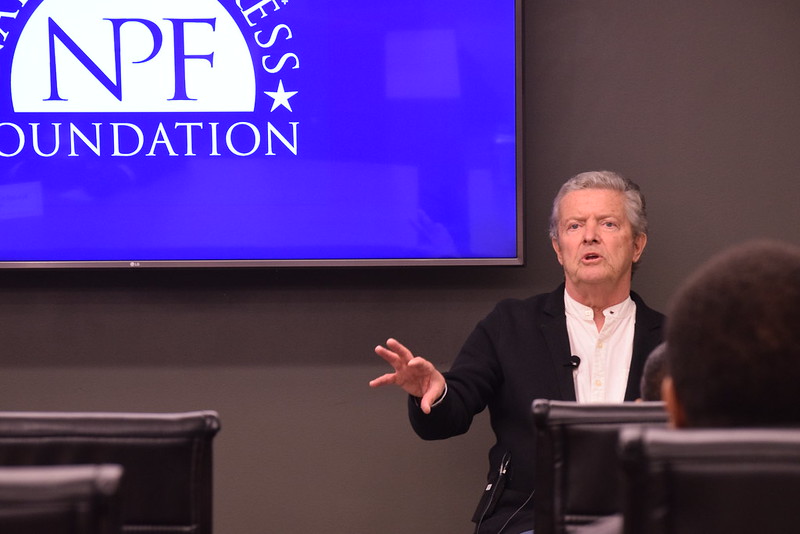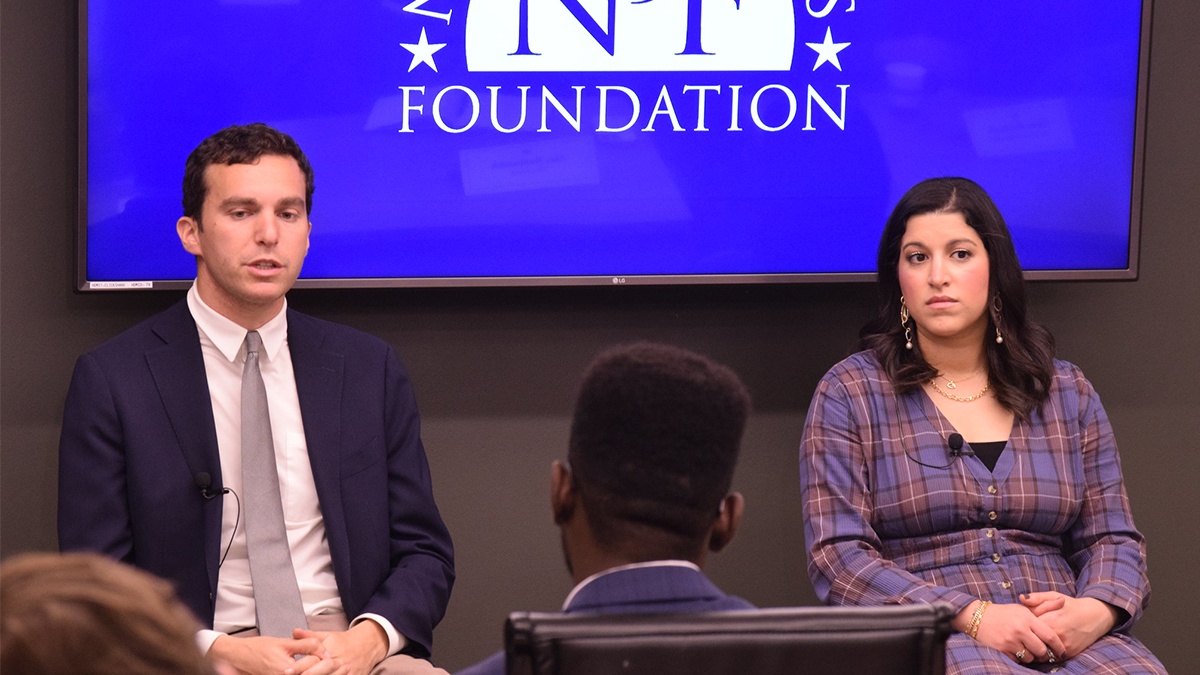Tom Bowman, the longtime Pentagon correspondent at National Public Radio, likes to describe Washington, D.C., as a “theme park,” where government officials and gatekeepers often attempt to spin their versions of reality to an eager press corps.
“People will tell you what they want you to hear,” Bowman told the National Press Foundation Paul Miller Washington Reporting Fellowship. “And again, you can be a reporter and just be a stenographer… that’s not what we do. And the only way you find out what’s going on is you build as many sources as possible … You can never have enough sources.”
At the Pentagon, Bowman said that work requires reaching beyond the building to retired military officers, Capitol Hill, active-duty service members and “real people” whose lives are affected by administration policy or decisions driven by the institution itself.
“The bottom line is you’ll never understand what goes on here unless you get that web of sources; you should be working it every single day,” Bowman said. (5:59)
“When you reach out to these staffers, when you reach out to the retired community, some have no interest in talking with you. Just keep going, keep going, try someone else. Keep going and go until you find someone… And once you do find that person, they’re worth their weight in gold,” the correspondent said, adding that the sources can serve as regular sounding boards for future reporting.
Bowman acknowledged that covering a beat as far-flung as the Pentagon can be daunting for both new beat reporters and those parachuting in on stories that have a nexus with the military.
“Yeah, it’s intimidating. When you go to the Pentagon at first and you’re in the briefing room, it’s like, ‘Oh my God, I’m in the briefing room of the Pentagon … What the hell am I doing here?’ And then the acronyms fly all around. It’s like I have no idea what these people are talking about. Or you go to these breakfasts and people … will start throwing out these budget things and this, that, and these widgets. And I’m like, ‘I’m completely lost.’ It does take a while. You read, you talk to people, you ask stupid questions.”
After more than two decades on the beat, Bowman said he recently found himself lost in a briefing on a new weapons system.
“And I’m looking around and I didn’t want to ask because I sound like an idiot,” he said. “Anything you cover, it could be farm issues, it could be the environment. It’s a huge learning curve and you just read as much as you can, talk to as many people as you can. But it takes a while; you got to be patient.”
Access the full transcript.






